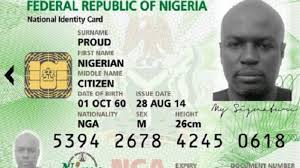100 Million Nigerians Have No Form Of Identification
African News, Featured, Latest Headlines, News, News Across Nigeria, News From The State Thursday, June 11th, 2020
(AFRICAN EXAMINER) – The National Identity Management Commission has stated that over 100 million Nigerians have no identity.
Aliyu Aziz, the Director-General of the NIMC, made the disclosure on during a zoom meeting with editors.
He said: “Over 100 million Nigerians have no identity (ID).
“These include the poorest and the most vulnerable groups, such as the marginalised – women and girls, the less-educated people, migrants, refugees, asylum seekers, stateless persons, people with disabilities and people living in rural and remote areas.
“The estimated population of Nigeria stands at 200 million. Only about 38 percent of the population has any form of ID.’’
He further stated that the commission has enrolled and issued 41.5 million unique identifiers, known as National Identification Numbers since the commencement of identity registration and enrolment in 2012.
He said: “Between 2012 till date, only 41.5 million citizens and legal residents have been enrolled into the National Identity Database and issued unique NIN, an average of 5.2 million enrollments per annum.
“At this rate, it will take a long time to enroll the remainder of the people currently living in the country today, and by that time, about 292 million more people would have been added.
“Hence the need for a strategy to enroll the backlog within the shortest possible time. And that is the reason for the idea of strategic roadmap and the birth of the ecosystem approach.’’
He also highlighted the importance of having a national identity.
He added: “Identity matters a lot for development, as inclusive and trusted ID systems can help achieve the goals of empowering individuals and enhancing their access to rights services and the formal economy.
“It helps in strengthening transparency, promoting efficiency and effectiveness in governance, service delivery and accountability.
“It also supports private sector development and service delivery, grows digital economy as well as regional and global integration as well as generates reliable data.
“Good ID system supports development goals, including access to finance, gender and equality, empowerment, access to basic health and education services, child protection, migration and labour market opportunities, improved access and quality of social protection as well as governance.’’
Related Posts
Short URL: https://www.africanexaminer.com/?p=52729






















